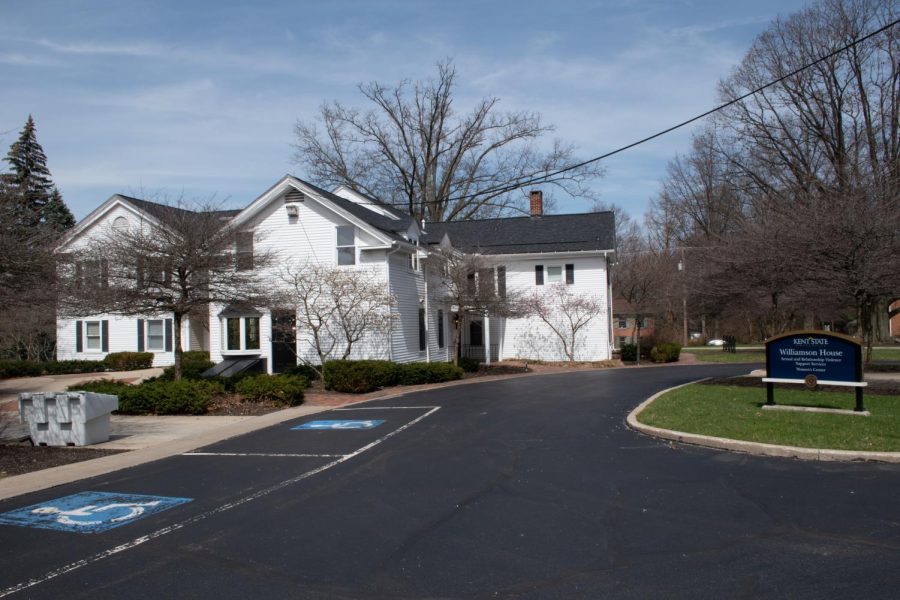One in five college women experience unwanted sexual contact, according to a study from the National Library of Medicine.
In Kent State’s 2023 Annual Security Report, there were 12 reported cases of rape and 14 reported cases of fondling on campus in 2022.
Although not all victims report their cases of sexual abuse or assault, they can talk about their experience in a safe space. Every Tuesday night in the Williamson House, students share their stories of abuse or sexual assault in a support group called Survivor’s Night.
The support group is held in two different sections, the healing from abuse support group facilitated by Safer Futures, a domestic violence shelter in Portage County, and the sexual assault support group facilitated by White Hall Counseling Services.
Megan Wytrzyszczewski, an advocate at Safer Futures, volunteers at the Williamson House and co-facilitates the healing from abuse support group.
“For a lot of people that are survivors of abuse or sexual assault, they can come to this group and be open with people who have experienced the same thing as them,” Wytrzyszczewski said. “I think that is part of the healing for them, they can come together and realize they are not alone in their journey.”
The support group is free, open to anyone and completely confidential. Although Wytrzyszczewski facilitates the groups, she keeps it open to let students talk about their experiences and prompts questions when needed.
A few students attend the group every week because they find it therapeutic to be able to talk to other students in similar situations while in a judgment-free space, she said.
Yvette Roberts, Assistant Director for the Center for Sexual and Relationship Violence Support Services (SRVSS), facilitated the support group and made it what it is now.
“My job is to support the student and make sure that they get the resources they need,” Roberts said. “If it’s not in the community the way the students feel they need to be supported, why not create it to fit the needs of the student.”
A problem many survivors have is a lack of a support system. People often don’t believe them or want them to move past their trauma, she said.
“If you know someone who has gone through any sort of abuse or sexual assault, just be there to support them,” Wytrzyszczewski said.
The time of year when female students are at the greatest risk for campus sexual assault is known as the “red zone.” The time frame is typically between the beginning of the semester and fall or Thanksgiving break.
“More than 50 percent of sexual assaults occur on campuses during this time,” Wytrzyszczewski said. “Freshman students are targeted the most as they are seen as the most ‘vulnerable’ and out on their own for the first time trying new things.”
Experiencing sexual assault increases the likelihood of female students ending the semester with depression and anxiety. This adds to the urgency of preventing sexual assault on campus and sheds light on the need for support groups.
“If you learn more about what sexual assault is, the types of abuse and some of the trauma that surrounds that… you can understand, you can have more empathy and you can really see what the survivor is going through,” Wytrzyszczewski said.
The healing from abuse support groups runs from 3-4 p.m. and the sexual assault support group is from 4:15-5:15 p.m. every Tuesday in the Williamson House at 1200 E Main St.
Savana Capp is Print Planner. Contact her at [email protected].





